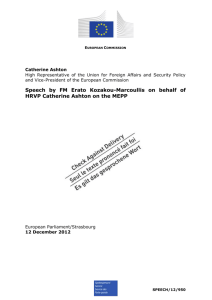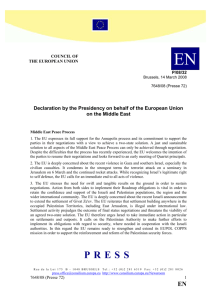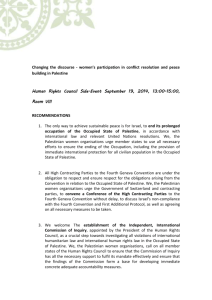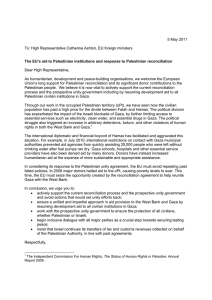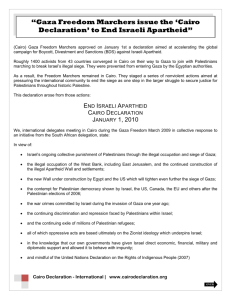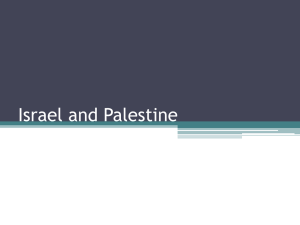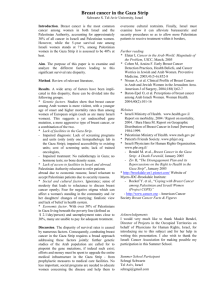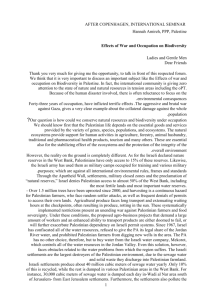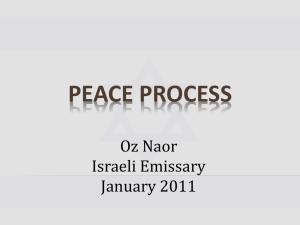Statement by State of Palestine at the 1st Session of the Open
advertisement
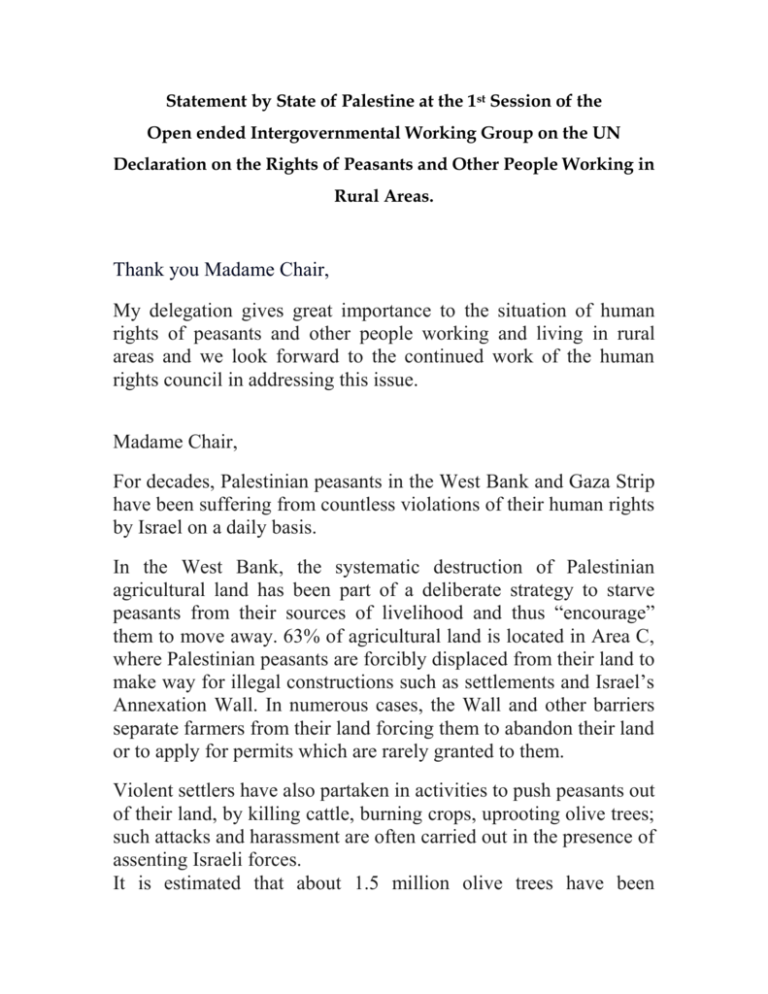
Statement by State of Palestine at the 1st Session of the Open ended Intergovernmental Working Group on the UN Declaration on the Rights of Peasants and Other People Working in Rural Areas. Thank you Madame Chair, My delegation gives great importance to the situation of human rights of peasants and other people working and living in rural areas and we look forward to the continued work of the human rights council in addressing this issue. Madame Chair, For decades, Palestinian peasants in the West Bank and Gaza Strip have been suffering from countless violations of their human rights by Israel on a daily basis. In the West Bank, the systematic destruction of Palestinian agricultural land has been part of a deliberate strategy to starve peasants from their sources of livelihood and thus “encourage” them to move away. 63% of agricultural land is located in Area C, where Palestinian peasants are forcibly displaced from their land to make way for illegal constructions such as settlements and Israel’s Annexation Wall. In numerous cases, the Wall and other barriers separate farmers from their land forcing them to abandon their land or to apply for permits which are rarely granted to them. Violent settlers have also partaken in activities to push peasants out of their land, by killing cattle, burning crops, uprooting olive trees; such attacks and harassment are often carried out in the presence of assenting Israeli forces. It is estimated that about 1.5 million olive trees have been uprooted, destroyed or burnt by the Israeli military and settlers since 2001. Furthermore, a policy of “water Apartheid” in the West Bank means that water resources are channeled mostly for Israeli use, including use in settlements, leaving the Palestinians and particularly peasants with an inadequate supply of water for their crops and cattle. Moreover, the water they do have access to is often polluted, as sewage water is allowed to flow from settlements into Palestinian areas, thus contaminating underground water and crops. In Gaza, Israel has declared large swaths of land as “buffer zones” which Palestinians are prevented from entering. These zones comprise 30-40% of Gaza’s farmland, and inaccessibility to those lands has caused an estimated lost agricultural output of 75,000 tons per year, according to a UN OCHA report. Israel has also declared parts of the Mediterranean Sea off the coast of Gaza as “buffer zones”, thus preventing Palestinian fishermen from accessing important sources of livelihood. Fishermen in Gaza are often the target of arrests and attacks from the Israeli navy, even when they are fishing within their restricted areas as opposed to the naval buffer zones. Furthermore, regular Israeli military attacks in the Gaza Strip have caused the destruction and damage of crops, farmland and agricultural buildings. For instance, Israel’s ruthless attack on the Gaza Strip in 2008-2009 caused 46% of agricultural land in the Strip to become unusable. Although agriculture is a backbone of the Palestinian economy, it is deliberately prevented from flourishing. Israel has adopted numerous measures to ensure that exports of Palestinian agricultural products are minimal. On the other hand, Israel continues to export produce from its illegal settlements, particularly to European markets, using resources stolen from Palestinian peasants. Madame Chair, Given all of this, it is not surprising that 10% of the Palestinian GDP and 110,000 jobs are estimated to be lost annually due to Israel’s destructive policies vis-à-vis Palestinian agriculture. It is high time for Israel to end its abuses of the rights of peasants in particular and of the Palestinian people as a whole, by finally and immediately ending the occupation of Palestine. Thank you for your attention.

